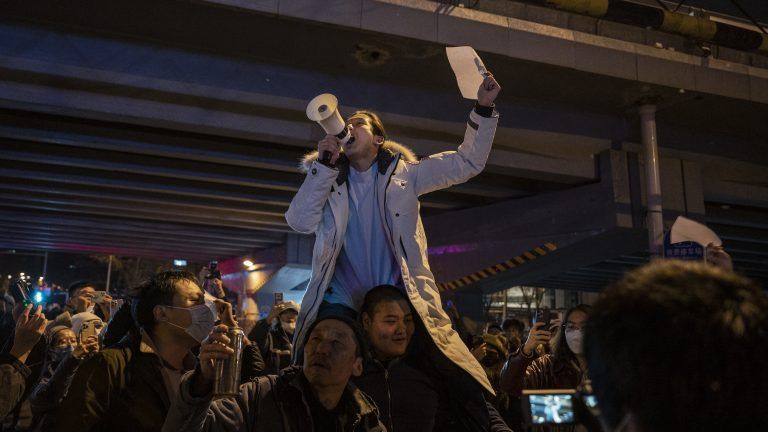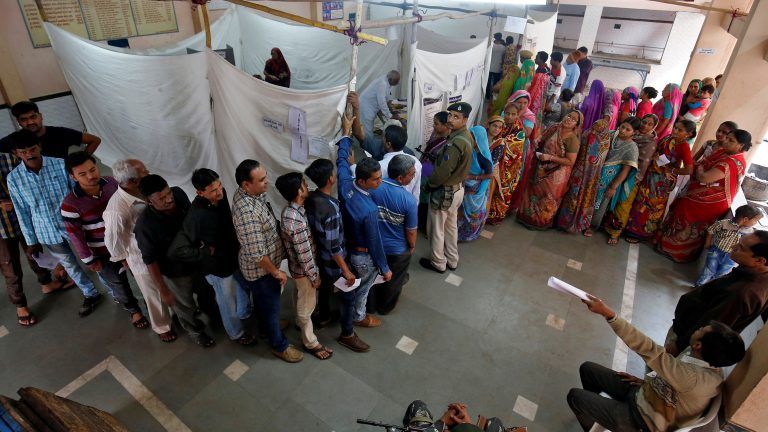Reports
A U.S. company created a crypto community in Venezuela. Now it has thousands of volunteers
These "Reserve rangers" are fighting for financial autonomy in their embattled country. But their community isn’t as decentralized as they think.
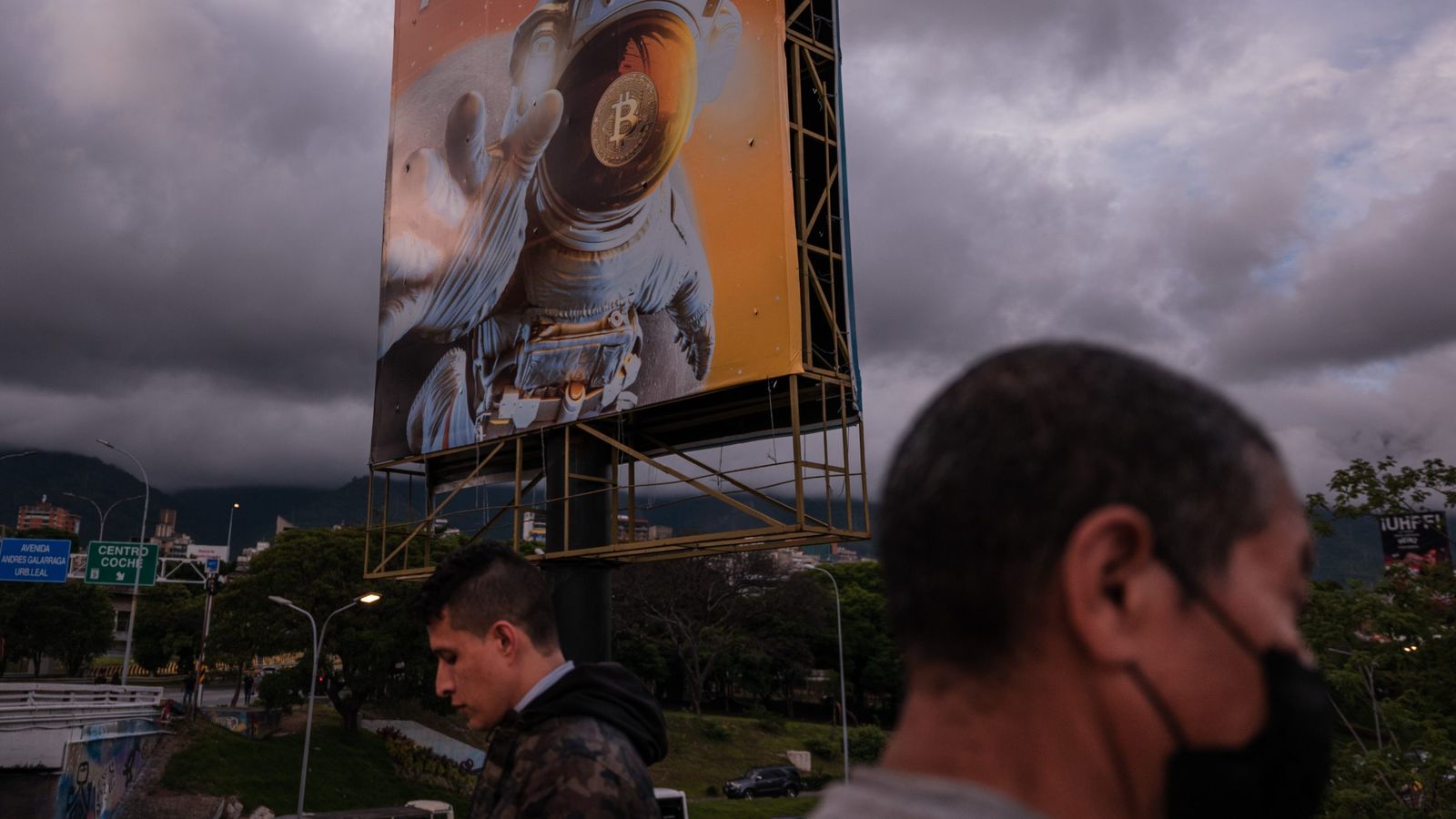
Andy Hidalgo struggled early in the pandemic to keep the value of his salary as a McDonald’s manager from slipping away due to Venezuela’s then nearly 3,000% inflation rate. Without access to a foreign bank account, the acquisition of U.S. dollars wasn’t much of an option for the 21-year-old living in the San Martín neighborhood in the west of Caracas either.
That year, a friend told him about an app called Reserve: a U.S.-based cryptocurrency exchange platform created by American entrepreneur Nevin Freeman in 2017 and backed by prominent funders such as Peter Thiel, Y Combinator’s Sam Altman, and Coinbase. When the company launched in Venezuela in 2019, people like Hidalgo started depositing money and digitally transferring U.S. dollars and Venezuelan bolívares back and forth, without an exchange fee. Today, it can be used as a payment method at stores all across Venezuela and for transferring money between friends, like PayPal or Venmo.
By relying on cryptocurrency, the platform skirts many regulations of traditional exchanges like banks or Western Union, giving around 600,000 Venezuelans access to currencies and providing Reserve with a daily transaction volume of $5 million. But Reserve represented something more for Hidalgo, just as it did for other users in Venezuela reeling from years of currency instability.
Hyperinflation began in Venezuela at the end of 2014, with the government forced to lop 11 zeroes off its national currency since 2018. "Paper money became scarce, and many operations began happening electronically," Aarón Olmos, an economist at the Institute of Higher Administrative Studies (IESA) in Caracas, told Rest of World. Reserve became a lifestyle for Hidalgo after he joined the cohort of self-proclaimed "Reserve rangers" — users who spend their free time spreading the app throughout the country. He even worked on a proposal to get Reserve accepted as a form of payment at his McDonald’s.
"It’s more than just sending and receiving money," Hidalgo said. "You’re part of a community."
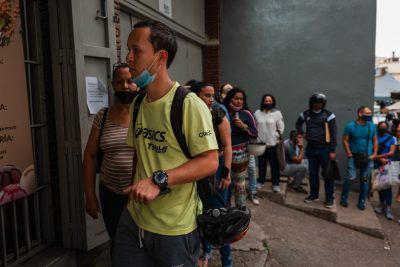
Many Venezuelan rangers view themselves as autonomous and self-empowered, playing a foundational role for the platform’s growth in the country by spending hours marketing the app through social media and in-person events, they told Rest of World. But this project isn’t particularly decentralized: Reserve claims it has had an authoritative hand in building up the rangers, taking advantage of their desire for community to bolster their company within Venezuela.
Cryptocurrency projects are typically built on the ethos of decentralization, which allows for distributed decision-making and control. "Decentralization was central to the origin story of cryptocurrency," said Ethan McMahon, an economist at the blockchain data platform Chainalysis. "What made Bitcoin radical was that it was not controlled by any one government, bank, or organization."
Reserve’s success was not predetermined in Venezuela. "[Fintech tools] need digital word of mouth on social media," Olmos said. That word of mouth, spearheaded by the rangers, has been instrumental to Reserve’s rapid growth.
According to several Reserve rangers, their own desire for camaraderie amid financial hardship helped to grow the community. They host dating events, teach crypto lessons to each other, and spend hours every day on community support and outreach. They spread referrals to new users and even developed their own slang. Meanwhile, Reserve executives said they would incentivize these behaviors by rewarding rangers with NFTs, small cash payments, and access to higher levels on the messaging platform Discord.
Hidalgo is part of an exclusive server called RClub, where the rangers organize events and strategize ways to onboard new users. It currently has almost 2,700 members. There, he spends about an hour a day on Reserve-related activities. Another Caracas-based ranger, Carlos Mijares, told Rest of World that he often logs five hours a day. They’ll either spend time on social media interacting with other rangers (Hidalgo set up a Twitter account specifically for the purpose), or register family and friends on Reserve. Hidalgo recently left his job at McDonald’s, partly to spend more time with the community. He’s in between jobs, as he figures out what to do next.
Yusepp Rodríguez, a ranger in Caracas, told Rest of World that the community is completely decentralized. "It’s our own initiative, it has nothing to do with the company — it’s our own need," he said. "It’s like a group of friends."
Despite perceptions of decentralization among the rangers, Reserve executives said that the feeling is intentional — and not exactly true. According to Gabriel Jiménez, Reserve’s chief operating officer and the former developer of Venezuela’s government-backed Petro crypto project, the rangers are actually coordinated by the Reserve staff. Jiménez understands money as a social phenomenon, and so set out to build not just a technology that would benefit Venezuela, but a community around it that would help spread it.
"We were selling an emotion," he told Rest of World.

Jiménez said the company implemented many of the mechanics that led to the growth of the rangers, such as gamifying the RClub server with giveaways and different levels to attract new members and spur engagement, as well as creating other spaces for rangers to congregate on messaging platforms like WhatsApp and Telegram. He even introduced the public signifiers of the community, from the dollar-bill-with-wings emoji to the name "ranger" itself, which he borrowed from a different crypto group.
Jiménez estimates the company now employs approximately 60 official staff members in the country, many of them community managers working to guide the voluntarily-associated rangers, who Jiménez claims number upwards of 20,000 users.
"We keep it centralized," he said.
This dynamic is replicated in other decentralized spaces, as control tends to concentrate among powerful users or the company itself. In late June, Chainalysis released a report finding that even in major DAOs, or decentralized autonomous organizations, less than 1% of all holders have 90% of voting power. "If too few [users can create a proposal], the community may come to feel that ‘decentralized governance’ rings false," McMahon told Rest of World.
Decentralization and democratization have become a marketing tool in many crypto projects rather than a core ethos, said Cristiano Bellavitis, a blockchain expert and assistant professor of entrepreneurship at Syracuse University. "Usually, [the company] wants to make the decisions," he added.
While Reserve does not purport to be decentralized, there is still discordance between the self-empowered perception of the ranger community and the reality of the company’s influence. When Rest of World asked Jiménez about this discrepancy, he smiled. "That speaks to us having done a good job," he said. "You cannot impose creating a community — you have to provide the spaces."

For many of the rangers, it doesn’t seem to matter much. They serve a crucial public-facing role for Reserve, but in return, they gain community — regardless of whether they’re in charge of the decision-making.
From Caracas, Hidalgo continues to work with the ranger community. Now that he’s left McDonald’s, his main priority is to convince Reserve to launch virtual and physical cards for transactions, which most Venezuelans lack.
"It makes sense [that Reserve] needs to have control over the way it is presented to the world, because it’s their company, and that’s not something they can take lightly," he told Rest of World. "Whether the community was tailored or not doesn’t affect me. At the end of the day, the ones that interact with the other rangers — and the community managers — are
us."

Reports
Risky digital wallets help Argentines fight inflation
Payment apps cushion users from a falling peso but won’t protect them from theft.
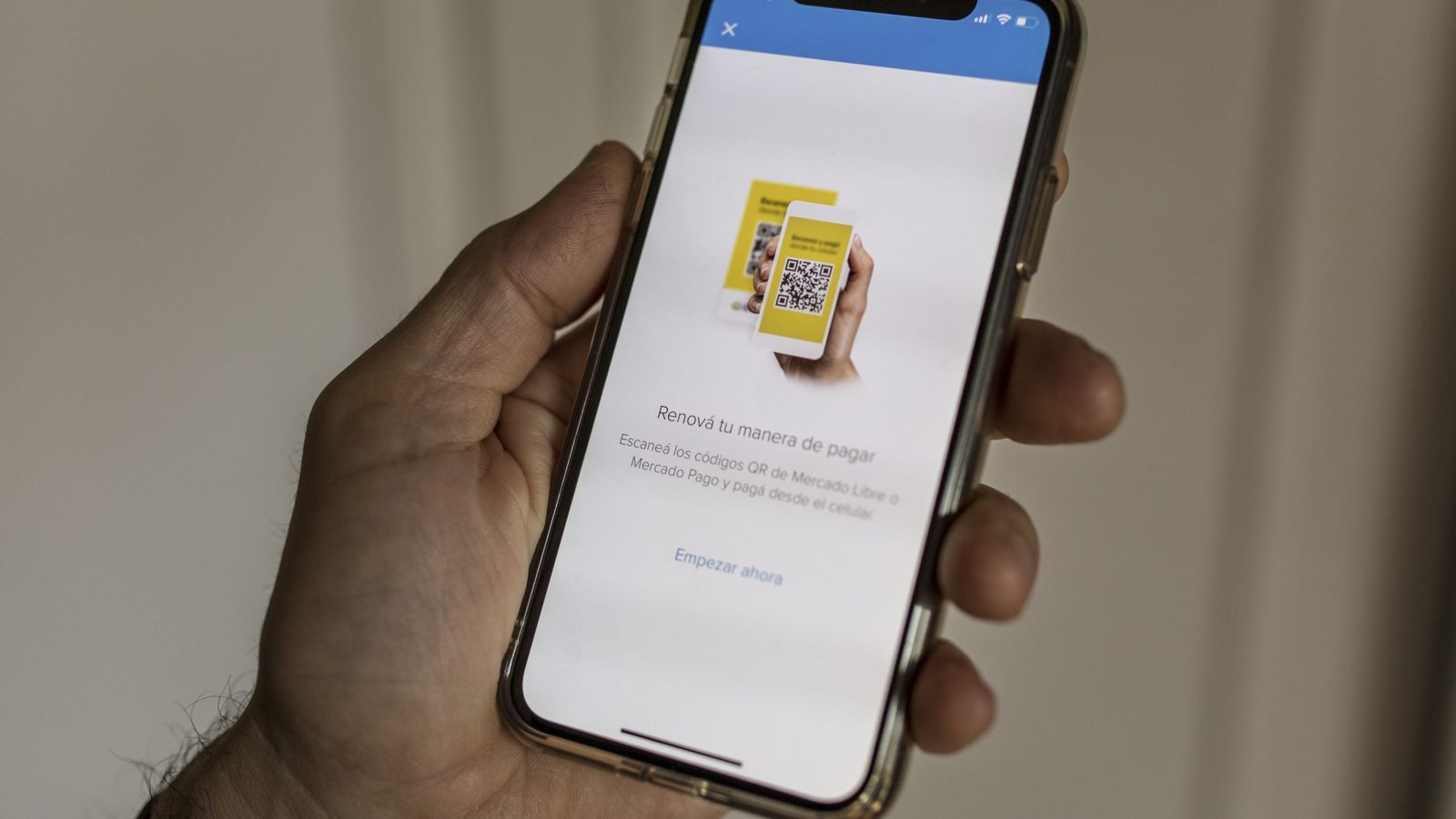
Ever since June 12, Andrea Álvarez, a famous Argentine musician, feels like she’s been rebuilding her entire life. It all started when a man stole her phone on the bus in Buenos Aires. Right after the theft, people warned her to block her Mercado Pago account as soon as possible. They were referring to the payments app which Álvarez — alongside millions of other Argentines — uses to store large amounts of her money. "First a lady, then a boy, then another person — four or five people approached me about it," she told Rest of World.
The scammers contacted her soon after, posing as Mercado Pago representatives. "They told me that thieves were trying to access my accounts, that they were taking out loans in my name," she recalled. Álvarez panicked and gave them enough data for them to empty her accounts. "They got me," she lamented.
Álvarez lost all of her savings through this payment app scam. She hasn’t recovered her money yet, but she’s pursuing justice after filing a suit both against Mercado Libre — Mercado Pago’s parent company — and her bank, which was linked to her app’s account. When she made her story public, dozens of users who had been victims of exactly the same scam reached out: They were all Argentines who had lost everything after depositing all their money in, or connecting their debit cards to, payment apps outside the official banking system.
With Argentina close to reaching an inflation rate of almost 100%, measures taken by people to keep their money’s value have been wide-ranging. While the wealthiest opt to buy dollars on the black market or turn to cryptocurrency, the middle and working classes can’t afford — or do not know how to get their hands on — dollars or crypto. Their adoption of digital payment apps seemed like the solution. Mercado Pago alone has over 5 million users. The app allows users to deposit money into an e-wallet and offers access to mutual funds that, at the moment, provide a return of around 60% annually. It’s not an investment, but rather, a way of preventing pesos from losing their value as quickly as they would by being parked in a normal bank account.
Over the past months, stories shared across social media have shown the risks of relying on digital wallets to stash one’s savings. Rest of World spoke to Mercado Pago users, scam victims, cybersecurity experts, and economists to see how the combination of economic instability and the generalized use of these payment apps is leading customers to expose their savings to scams and theft.
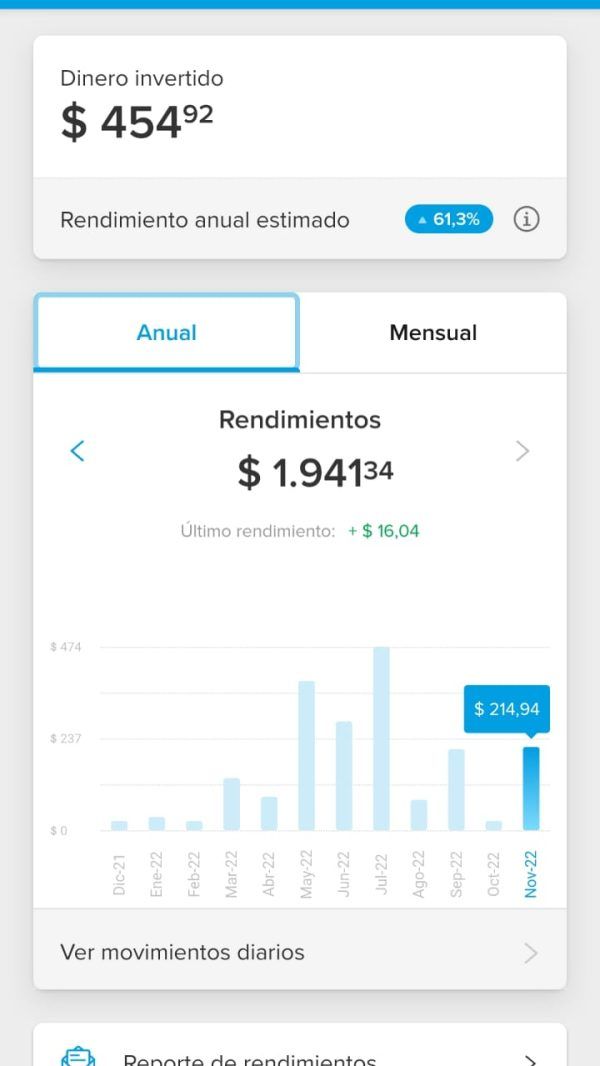
Rest of World reached out to Mercado Pago but received no comment by the time of publication.
The adoption of digital wallets skyrocketed in Argentina, thanks to a combination of high inflation and the digitalization of many daily transactions during the Covid-19 pandemic. With the ubiquity of Mercado Libre in Argentina, Mercado Pago was well-positioned to lead the payment apps sector from the start. According to the October 2022 Central Bank report, half of the adult population uses digital payment products while the use of e-wallets has doubled in the past two years. The result has been that today, digital payments make up 50% of all financial transactions in Argentina.
"Mercado Pago is the main digital wallet in terms of user and e-commerce adoption [in Argentina]," Ignacio Carballo, head of crypto and alternative finance at Americas Market Intelligence, a market consultancy, told Rest of World. But the concentration of so many users and their savings on one single app worries cybersecurity experts and economists alike.
A major risk arises due to the ease with which anyone can access anyone else’s Mercado Pago account. Gia Castello, program director at 0xche, a Latin American hacktivist organization, told Rest of World that after a phone is stolen, "the verification code to unlock a Mercado Pago account is sent to the SIM card." Anyone can gain access simply by placing the card in a new device and resetting the account’s password.
Users should apply as many layers as possible to guarantee safety, according to Castello. "A safe password, 2FA [two-factor authentication], and by encrypting the SIM card, at least." These measures must be taken by users, she said, but companies should encourage them and invest as much as they can in increasing their data protection. "Companies should take ownership in protecting their users’ data, which is very expensive," said Castello. "The more money they invest in their infrastructure, the safer the wallets will be."
"It doesn’t have any security measures, it’s just dangerous. Your claims will not be answered if something happens."
The problem is often made worse because e-wallets are not required to address scams and theft in ways that formal banks need to. Martín Burgos, an economist from the Cultural Center for Cooperation, a Buenos Aires-based politics and economy research center, told Rest of World that though Mercado Pago "says it helps financial inclusion, its high interest rates risk affecting the most vulnerable." This, he said, was due to a lack of regulation which allows Mercado Pago to easily loan out money through its Mercado Crédito option or offer high interest rates for short-term investments through its Mercado Fondo branch.
Carballo, the crypto consultant, highlights that the security issues present in Mercado Pago are common to all digital wallets: as opposed to debit or credit card scams, payment apps have security guarantees like those given by formal banks. "They’re not financial institutions," he pointed out.
For some users, the lack of in-person attention that traditional banking provides is another downside when it comes to scams and theft. "Some people want to speak to other humans in an office, which doesn’t exist in Mercado Pago," said Carballo.
This was precisely the experience that Valeria Tartara, an avid user of Mercado Pago, had after being scammed on November 6. Apart from emptying the app and her linked bank account of funds, the mugger who stole her phone went as far as to take out a loan in her name via Mercado Crédito.
"Reaching a [help] hotline was an odyssey, it took me hours and hours," Tartara told Rest of World. "And when I reached [Mercado Pago staff], they undermined my complaint." Mercado Pago did not respond to her demands, blocking only some of the loans that the thief had requested. To this day, she has not recovered her money, although she is filing a lawsuit.
"My advice is: don’t use Mercado Pago, just don’t," said Tartara. "It doesn’t have any security measures, it’s just dangerous. Your claims will not be answered if something happens."
But, for people like Agustina Acosta, a local actress, not using Mercado Pago is not an option. Before hearing about the scams, she used to transfer a percentage of her income into her Mercado Pago wallet every time she was paid. "I would make some extra pesos and then use them to buy something for myself," she said.
Then, Acosta heard about the scams. She now transfers less money into her wallet, but is forced to continue doing so. Many of the markets in her Buenos Aires neighborhood only accept Mercado Pago as a payment method. "[The app] allows a lot of people to access digital finance, especially those who work informally," she said.
Acosta ultimately feels like she has no option: "Just take my money and let me buy what I need." She told Rest of World that she plans to use Mercado Pago until better options appear. "I don’t trust the system, and they’ll screw you either way," she said. "I guess I’ll keep playing with fire until it happens to
me."

